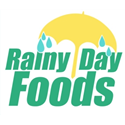Shop Products
Nutritious, real emergency food storage! Save $$ money on bulk food supplies with decades long shelf life, ready whenever you need it. No refrigeration required! Over 1000 storable food products that can be eaten every day.
Food Assets offers a huge selection of freeze dried and dehydrated food, packaged individually or in bulk (cans, buckets, bags and pouches). We offer a ready-to-use food supplies for any crisis! Unlike canned or frozen food, our products are shelf-stable and can last decades in sealed containers.
Food Security Is National Security - The United States has NO national food security stockpile for emergencies! Billions are already at risk of food insecurity, which is expected to rise to over 3.5 billion people by 2050.
Be Prepared for Earthquakes, Droughts, Disaster, Floods, Fires, Tornadoes, Hurricanes, Economic Collapse, Job Loss, Riots, Food Shortages, Pandemics, Disease, Outbreaks, Emergency Survival, Climate Change, Crop Losses, Rising Food Prices or Inflation with Essential Food Storage and Supplies.
Food Assets offers a huge selection of freeze dried and dehydrated food, packaged individually or in bulk (cans, buckets, bags and pouches). We offer a ready-to-use food supplies for any crisis! Unlike canned or frozen food, our products are shelf-stable and can last decades in sealed containers.
Food Security Is National Security - The United States has NO national food security stockpile for emergencies! Billions are already at risk of food insecurity, which is expected to rise to over 3.5 billion people by 2050.
Be Prepared for Earthquakes, Droughts, Disaster, Floods, Fires, Tornadoes, Hurricanes, Economic Collapse, Job Loss, Riots, Food Shortages, Pandemics, Disease, Outbreaks, Emergency Survival, Climate Change, Crop Losses, Rising Food Prices or Inflation with Essential Food Storage and Supplies.



